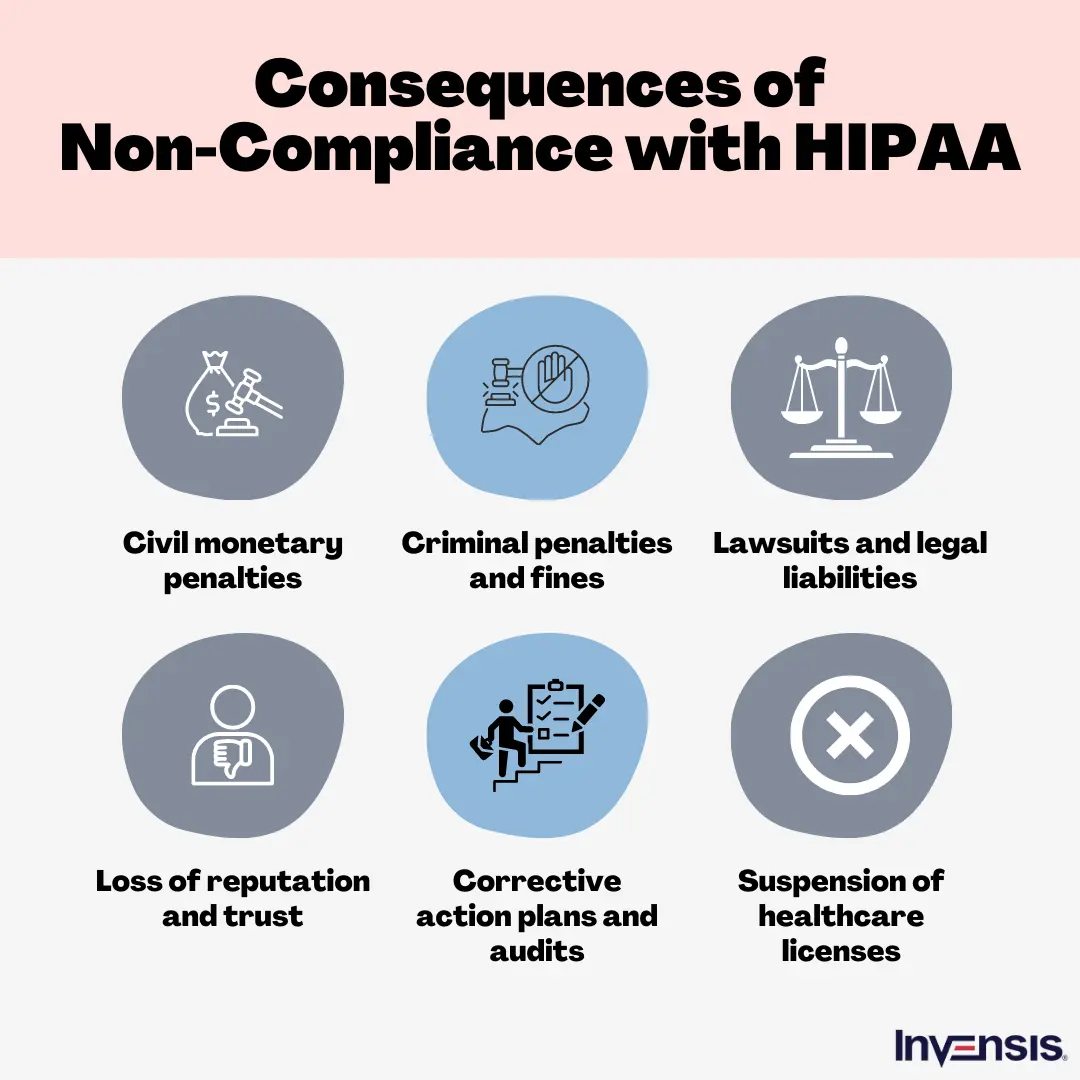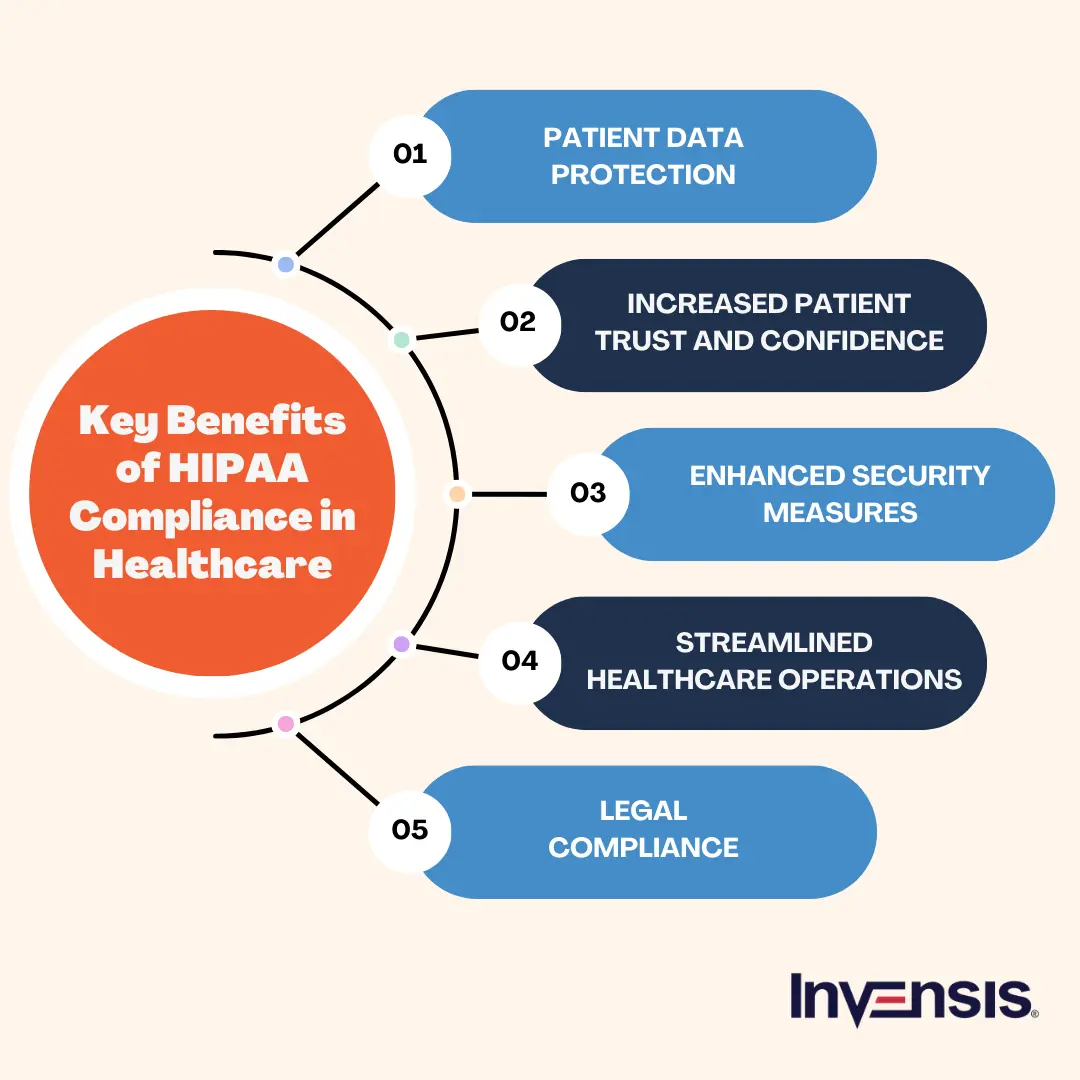
 Revenue Cycle Management
Revenue Cycle ManagementThe Role of HIPAA in Medical Billing? Best Ways to Ensure HIPAA Compliance

Content
HIPAA, abbreviated Health Insurance Portability and Accountability Act is a significant piece of legislation enacted in the United States in 1996 to safeguard sensitive patient health information and establish certain rights related to healthcare privacy. In medical billing, HIPAA means that all parties involved in the process, including healthcare providers, billing companies, and insurance entities, must adhere to the strict guidelines set forth by HIPAA.
Although HIPAA covers many healthcare-related regulations, it specifically addresses privacy and security concerns associated with protected health information (PHI). Unauthorized access, data breaches, and improper handling of PHI can have serious consequences, ranging from compromising patient privacy to financial loss and reputational damage for healthcare organizations.
Therefore, understanding and implementing HIPAA's provisions and best practices in medical billing is crucial to ensure compliance and protect patient privacy. This blog will delve deeper into the role of HIPAA in medical billing and explore the best ways to achieve and maintain HIPAA compliance in healthcare.

Role of HIPPA in Medical Billing
HIPAA plays the following role in medical billing:
1. Patient Privacy:
Establishes strict guidelines for protecting patient privacy and confidentiality. It requires healthcare providers, including those involved in medical billing, to implement measures to safeguard patient information. It includes maintaining the privacy of patient's medical records, billing information, and any other personally identifiable information.
2. Electronic Transactions and Code Sets:
Mandates standardized electronic transactions and code sets in medical billing. This standardization ensures that healthcare providers and health plans use consistent formats and codes when submitting and processing claims electronically. Standardization simplifies the billing process, enhances efficiency, and reduces errors.
3. Security Standards:
Set specific standards to protect electronic PHI (ePHI) from unauthorized access, use, or disclosure. Healthcare organizations must implement administrative, physical, and technical protection to maintain the integrity and security of patient information. It includes access controls, encryption, audits, and staff training.
4. Transaction and Code Set Compliance:
Requires healthcare providers to use specific code sets, like the International Classification of Diseases (ICD) and Current Procedural Terminology (CPT), for medical billing purposes. Compliance with these code sets ensures consistency and accuracy in billing and reimbursement processes.
5. Privacy Notices and Consent:
Requires healthcare providers to notify patients of privacy practices. This document explains how the provider uses and protects their PHI and the patient's rights regarding their information. Patients must provide written consent for releasing their PHI, except in cases where the information is required for treatment, payment, or healthcare operations.
6. Business Associate Agreements:
Regulates the relationships between covered entities (e.g., healthcare providers, insurers, health plans) and their business associates. Medical billing companies are considered business associates, and HIPAA requires covered entities to establish agreements with these entities to ensure that PHI is appropriately protected.
Non-compliance with HIPAA regulations can lead to significant penalties and legal consequences. Healthcare providers and medical billing companies must understand and adhere to HIPAA requirements to maintain patient privacy and the security of health information.
How Can Providers Stay HIPAA-Compliant?
Healthcare providers can take several measures to stay HIPAA compliant. Here are various ways healthcare providers can ensure compliance with HIPAA regulations:
1. Staff Training and Education:
Educating and training all staff members on HIPAA regulations and the organization's policies and procedures regarding patient privacy and security is essential. It includes training on properly handling PHI, recognizing and reporting security incidents, and understanding their roles and responsibilities in maintaining HIPAA compliance.
2. Privacy and Security Policies:
Healthcare providers should develop comprehensive privacy and security policies and procedures that align with HIPAA requirements. These policies should cover data access, storage and disposal, breach notification, workforce sanctions, and other security measures. Regular updates and reviews of these policies are crucial to adapt to changes in technology and regulations.

3. Risk Assessments and Audits:
Conducting regular risk assessments helps identify potential vulnerabilities and risks to patient information. Providers should comprehensively analyze their systems, processes, and physical infrastructure to identify security gaps and take appropriate measures to mitigate them. Additionally, conducting periodic audits ensures ongoing compliance and identifies areas needing improvement.
4. Technical Safeguards:
Implementing robust technical safeguards is crucial for protecting ePHI. It includes employing strong access controls, such as unique user IDs and passwords, encryption of sensitive data, implementing firewalls and intrusion detection systems, and regularly updating and patching software systems to address vulnerabilities.
5. Physical Safeguards:
Physical security measures should be in place to protect physical access to areas where PHI is stored. It includes restricted access to data centers, secure storage of paper records, video surveillance, and proper disposal of physical media.
6. Business Associate Agreements:
Healthcare providers should establish written agreements with their business associates, such as medical billing companies or IT service providers, to ensure these entities comply with HIPAA regulations. These agreements outline the responsibilities of the business associates regarding the protection of PHI.
7. Incident Response Plan:
An incident response plan is important to address any security incidents or breaches effectively. The plan should include procedures for identifying and responding to incidents, mitigating potential harm, notifying affected individuals, and reporting the incident to the appropriate authorities.
Conclusion
Navigating HIPAA compliance has become increasingly challenging due to evolving requirements. Recent changes have introduced new complexities, making compliance a daunting task for healthcare providers. Heightened focus on data breaches, increased penalties, and expanded patient rights have created a shifting regulatory landscape. Keeping pace with evolving technology, such as cloud computing and mobile devices, further compounds the challenge.
Healthcare organizations must continuously adapt policies, procedures, and security measures to ensure compliance. Partnering with an experienced HIPAA compliance provider becomes crucial to overcome these hurdles. Invensis has over 22 years of experience assisting healthcare clients to stay HIPAA compliant. Our proven track record and deep industry knowledge make us the preferred choice for assisting healthcare providers with their compliance needs.
Our medical billing services are designed to meet your unique requirements, from comprehensive staff training and policy development to risk assessments, audits, and secure IT infrastructure. We stay up-to-date with regulatory changes and, therefore offer solutions that are in keeping with the latest HIPAA mandate. Contact us now to partner with us in our HIPAA compliance journey.
Discover Our Full Range of Services
Click HereExplore the Industries We Serve
Click HereBlog Category
Related Articles

Optimize your store in 2026 with the best WooCommerce order management plugins. Automate order tracking, inventory, and customer service for success.
January 21, 2026
|

Find the leading accounting firms in Singapore trusted by businesses for audit, tax, and advisory services.
November 6, 2025
|

Explore the leading accounting firms in South Africa providing expert audit, tax, cloud accounting, and payroll services. Learn about their key features and unique offerings.
February 2, 2026
|
Services We Provide
Industries We Serve





.webp)